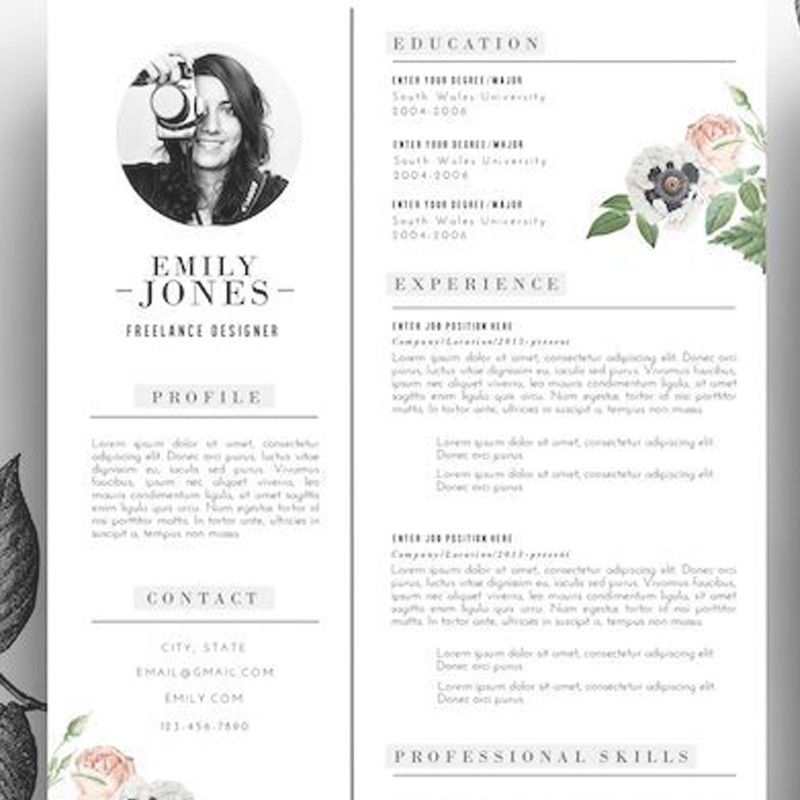How To Get Your CV To The Top Of The Pile
The Layout
When it comes to getting eyes on your CV, nothing is more important than a killer layout to make that initial grab for attention. Ideally, Monster recommends your CV needs to fit onto one page – this isn’t War and Peace, rather just a summation of your job history and skills.
The recruitment experts at KIS Finance suggest keeping the layout of your CV simple and clear, so it’s easy for recruiters to find the information they want. “It focuses on relevant key accomplishments for the job, and this makes it much easier for the reader to see if you have the skills they want. Too much detail will turn the reader off.”
As such, Kate Allen, Managing Director of Allen Associates, suggests a clean, structured layout that takes the reader on a journey: "A clean layout improves readability and appeal. It also helps to have a chronological order, so start with a couple of sentences that outline your experience and expertise, and your expectations for your next role. Then go into your work history starting with your most recent position and working backwards."
And while it might seem like creating something eye-catching using a splash of colour might make your CV stand out, you’d actually be right – a recruiter will pick your CV up and throw it right in the bin. Rebecca Siciliano, Managing Director of Tiger Recruitment, says avoid multiple colours, illustrations and wacky fonts are to be avoided at all costs. “Even if you’re applying for a creative role, your CV is not the place to be showing that kind of creativity. Keep to simple black typeface on a white background – we recommend Calibri, size 11.
The Wording
So the recruiter has your CV in hand. Now what? The recruitment specialists Robert Half say there’s a whole list of words you need to avoid to make the right impression:
‘Familiar with’: A close cousin to ‘knowledge of’ and ‘experience with’ in the family tree of nebulous phrases, this can send your resume to the bottom of a potential employer's pile of applications. These vague phrases say nothing about your level of knowledge in a certain area – avoid them. Instead, be as specific as possible when discussing the skills you possess. For example: "10 years’ experience working with Microsoft Office applications, including Word, Excel and PowerPoint. Achieved Microsoft Office Specialist designation in 2017."
‘Leverage’ & ‘Utilise’: These words just mean ‘use’. Don’t try to use overly fancy words in your application materials. Keep things simple and, as much as possible, quantify your achievements to truly show the impact your actions had.
‘Responsibilities include…’: One of the biggest mistakes job applicants make is including a long, drawn-out list of all of their work duties in a current or past position. Hiring managers likely know the types of tasks you performed in a previous role and don't need a detailed breakdown. Instead, describe how you helped a previous employer save money or increase efficiencies, your advancement in a past role, or how you changed a job for the better.
‘Core competencies’: Human resources professionals might love this phrase, but it is a real mouthful in a resume and likely to make a hiring manager's eyes glaze over. Again, keep it simple. If you have a section titled ‘Core competencies’, try replacing it with ‘Skills’ or ‘Qualifications’ instead, and only include things that are quantifiable.
‘Unique’: Very few things in the workplace are actually unique. Having a certification does not make you uniquely qualified — it makes you certified. If you invented something, say 30 unique patents, you are welcome to use it. Otherwise, skip this cliché.
‘Proactive’ & ‘Hardworking’: These words don't add anything specific to your CV unless you can back it up. If you want to show that you're proactive, give a specific example of the impact you made in a prior role. For example: ‘Created an annual calendar for department reports, increasing on-time delivery by 25%.’
‘Thought Leader’: Is your name Malcolm Gladwell or Sheryl Sandberg? If not, you probably aren't a thought leader and shouldn't describe yourself as such in your resume. ‘Philosopher’ and ‘influencer’ are similar descriptives to pass on. At best you'll seem snobby and at worst, delusional.
‘Team Player’: The problem with this term is that it's unquantifiable. Employers certainly hope that candidates work well in a team — it's kind of the bare minimum for working in an office environment. It's better to discuss a specific example of professional achievements you've made in a team than to use the vague ‘team player’.
Kate Allen agrees that wording is oh-so important to getting your point across and suggests prioritising verbs rather than adjectives: "Effective ‘power’ words such as ‘increased’, ‘resolved’ and ‘created’ suggest achievement and prompt the recruiter to want to know more about your attainments. Focus on two or three things that you are most proud of in your current or previous role and use these to sell yourself as the candidate of choice. Remember, recruiters are looking for people who will deliver a great return on investment."
The Content
KSI advise that, no matter what information you’re including in your CV, to keep it positive and upbeat: “Nothing annoys a recruiter more than someone who gives the impression that they are doing the company a favour by applying.”
Robert Half say including your ‘hard skills’ – such as project management or the ability to speak a foreign language – is a given, but it’s also important to include your ‘soft skills’, too. “Soft skills can differentiate you from other top candidates, so highlighting them in your resume is a must. When all else is equal between two candidates, it’s your soft skills that can tip the balance in your favour.”
According to Reed.co.uk, soft skills include leadership, problem-solving, critical thinking, flexibility, resilience and negotiation skills.
Rebecca Siciliano also advises that you double check your content to make sure you haven’t missed anything out. Missing contact details such as an email address or phone number means recruiters won’t be able to contact you in the event of a successful application, and missing dates of employment and inaccurate job descriptions are bound to arouse suspicion, so check and check again what you’ve written down.
The Dos and Don’ts
Writing a CV is essentially an employment minefield – there are myriad mistakes you could make that could hinder your chances of getting your dream job. Here are just a few of the dos and don’ts from our experts to take on board before you send off your resume…
DO…
Check, check and check again: Inaccuracies such as spelling or grammatical errors will completely reduce the value of everything else on your CV. No matter how relevant your experience or how great your skills, if you make careless mistakes a recruiter will conclude that you either don’t pay enough attention or lack basic literacy skills.
Look out for random faults in the layout: Often you’re so busy trying to get the wording right that you can miss out on the little things that are just as important. Poor formatting is very common and a big turn off – especially if it’s a job where you’ll be using Word. So keep an eye out for any strange formatting issues, such as inconsistent margins, random bullet points, unnecessary diagrams, and text boxes or tables inserted for no reason.
Include a cover letter: This is your opportunity to explain why you want the job and convey genuine interest in the organisation and the role. Be convincing but honest, as experience employers will sniff out insincerity almost immediately.
Mention your personal achievements: While experience is crucial, it's sometimes the little extras that help project you as a great candidate. If you have any personal projects, mentoring experience, blogs or volunteering experience, be sure to include them – these are all indications of character and initiative. They can label you as a hard-working, self-starter which are ideal qualities and help to paint a better picture of who you are and how you might fit into the culture of the hiring organisation.
DON’T…
Include a picture: Avoid putting a cheesy photo at the top of your CV – or anywhere else for that matter. Recruiters don’t need to know what you look like, they need to know you can do the job.
Talk about yourself in the third person: You’re not the Queen!
DISCLAIMER: We endeavour to always credit the correct original source of every image we use. If you think a credit may be incorrect, please contact us at info@sheerluxe.com.






